Anthony Albanese slams US President Donald Trump tariffs as ‘unjustified’
The PM slammed new tariffs, including a 10pc impost on beef, while delivering a veiled swipe at the US President’s grasp of ‘Year 7’ economics.
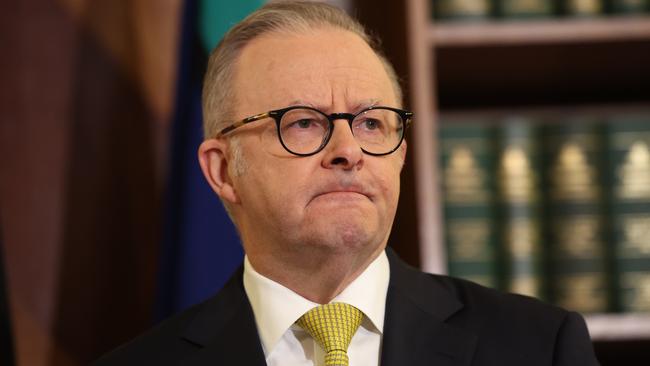
Anthony Albanese has slammed new tariffs announced by the US Trump administration while ruling out applying reciprocal measures, and announcing a suite of actions to safeguard industry against a more difficult global trading environment.
The Prime Minister responded to Donald Trump’s announcement on Thursday AEDT that the US would impose a 10 per cent, across-the-board tariff on all imports.
United States officials have assured Australia beef imports will not been banned, despite this being suggested by Donald Trump.
After Anthony Albanese could not categorically say whether beef imports had been banned, the government received advice from Australia’s embassy in Washington that beef exports into the US would be allowed to continue but would be hit with a 10 per cent tariff.
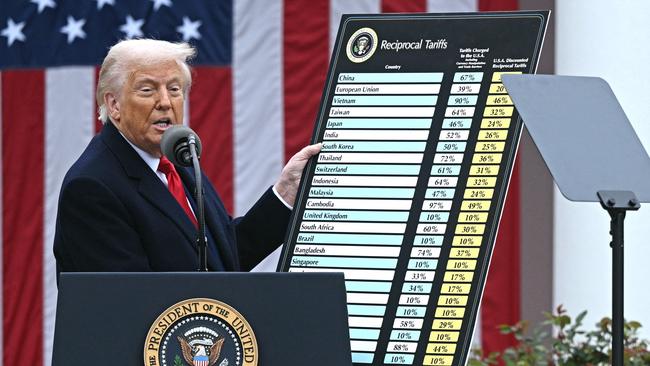
Mr Albanese flatly rejected the US assertion Australia applied anything equivalent to a 10 per cent tariff on the US, and said the imposition of tariffs was “unjustified”, “have no basis in logic”, and “not the act of a friend”.
“Today’s decision will add to uncertainty in the global economy and it will push up costs for American households,” he said.
“It is the American people who will pay the biggest price for these unjustified tariffs.
“This is why our government will not be seeking to impose reciprocal tariffs.
“We will not join a race to the bottom that leads to higher prices and slower growth.
“We will stand up for Australia. We will continue to make the strongest case for these unjustified tariffs to be removed from our exporters.”
Mr Albanese, addressing a press conference in Melbourne, delivered a veiled swipe at Mr Trump’s handling of economics, saying he understood in Year 7 that border taxes hurt the country that impose them more.
Mr Trump has been advocating for a return to a high tariffs regime for nearly 40 years as a public figure in America, and on Thursday argued again that jobs and factories would come “roaring back” into America as his policies supercharge the US industrial base.
But Mr Albanese said he understood from early schooling that tariffs damaged the countries who imposed them, more than the nations targeted with the taxes.
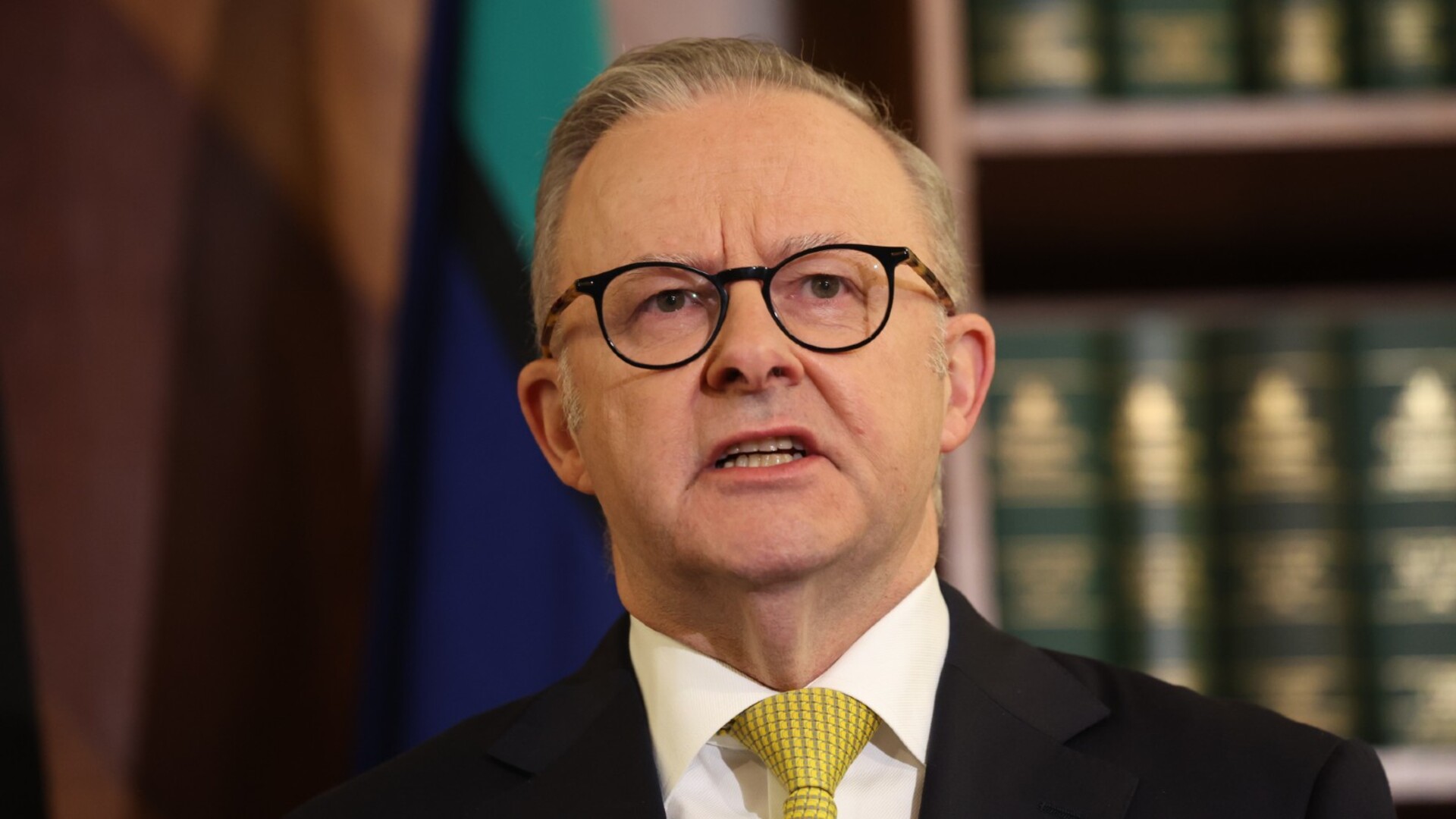
“We can’t control what the US administration determines we can engage with them. This is a decision that they have made. It’s one which we think, importantly, is not in the interests of the United States … tariffs impact the country that is imposing them. And Australians need to understand that,” he said.
“I think that there is a debate that, frankly, I thought had gone away from my Year 7 economics class at school.
“Didn’t have to go to uni and get an economics degree to get that, but there appears to be a debate about that.
“It produces higher costs for the country that’s imposing the tariffs, which is why we’re not responding by lifting up our tariffs and by therefore having an inflationary impact. So it’s important that Australians get that as well.”
He said the latest information suggests there will be a 10 per cent tariff across the board for Australian exports with no special barrier on Australian beef.
“Our understanding is that it applies across the board,” Mr Albanese said. “Our understanding is that there is a, I heard President Trump’s comments that were made.
“Our understanding at this point is that that is a 10 per cent tariff across the board, but we have come here to give you the respect of an immediate response. We’ll await further discussions with the US administration.”
He stressed that the US only accounted for “less than five per cent” of Australia’s export market, and vowed to stand up for the Australian community.
“Our government will always stand up for Australian jobs, Australian industry, Australian consumers, and Australian values,” he said.
“That is why we have been crystal-clear with the United States about what is not up for negotiation. Australia is a great trading nation. One-in-four of our jobs depend on trade but we’ll never trade away the things which make us the best country in the world.”
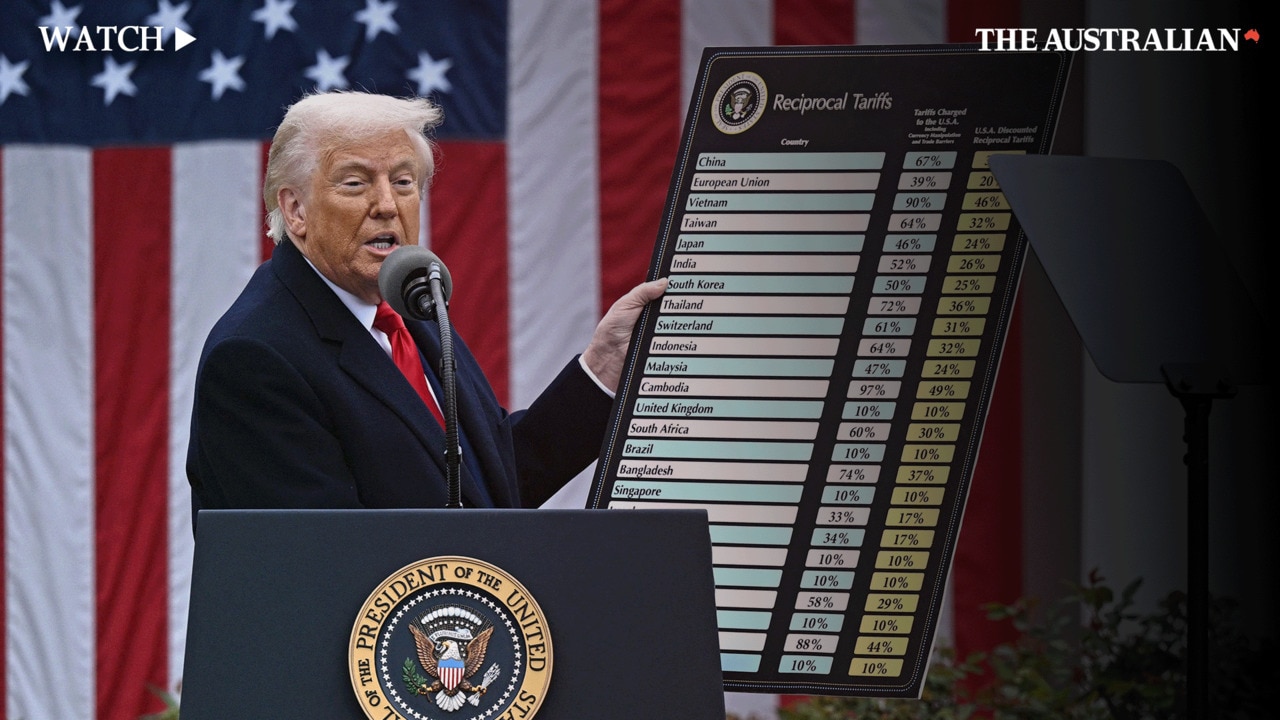
Mr Albanese announced his government would introduce a suite of measures to product Australian industry.
“First, we will strengthen our anti-dumping regime to safeguard key sectors like steel, aluminium and manufacturing against unfair competition,” he said.
“Second, we will provide $50m to affected sectors particularly through peak bodies such as the National Farmers Federation to secure and grow new markets for their world-class products. This work will be backed by five new business and investment missions to priority markets within the first 100 days of our second term.
“Third, we will establish a new Economic Resilience Program through our National Reconstruction Fund. This will provide $1bn in zero interest loans for firms to capitalise on new export opportunities.
“Fourth, just as we are already encouraging more people to buy Australian, our Labor government will buy Australian, too.”
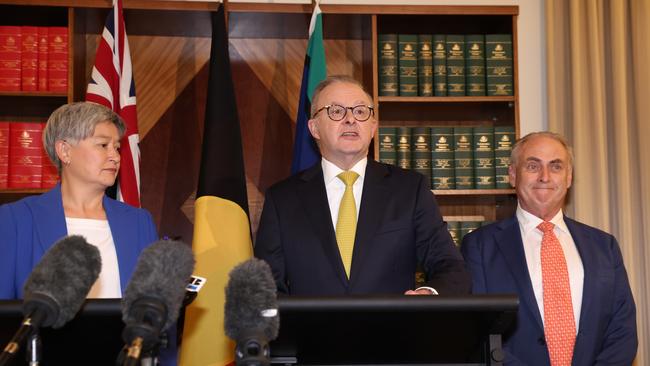
Foreign Affairs Minister Penny Wong, speaking alongside Mr Albanese, signalled closer ties to Indo-Pacific allies in light of the US tariffs.
“With India, that has overtaken the United States as our fourth largest trading partner, with Japan and Korea, and South-East Asia, that will be the world’s fourth largest economy, where we’re implementing the South-East Asian strategy to 2040, and the Pacific, where we have delivered transformational partnerships after a lost decade from the Coalition,” Senator Wong said.
“Some of the countries in our region are the hardest hit by the tariffs.
“We don’t underestimate the (effect) to the economies of our region and the global system.
“But we face those challenges calmly and maturely, we certainly won’t be picking fights in our neighbourhood. Our approach is to be credible and mature, to deal calmly with these challenges, and to seize the opportunities that lie ahead.”
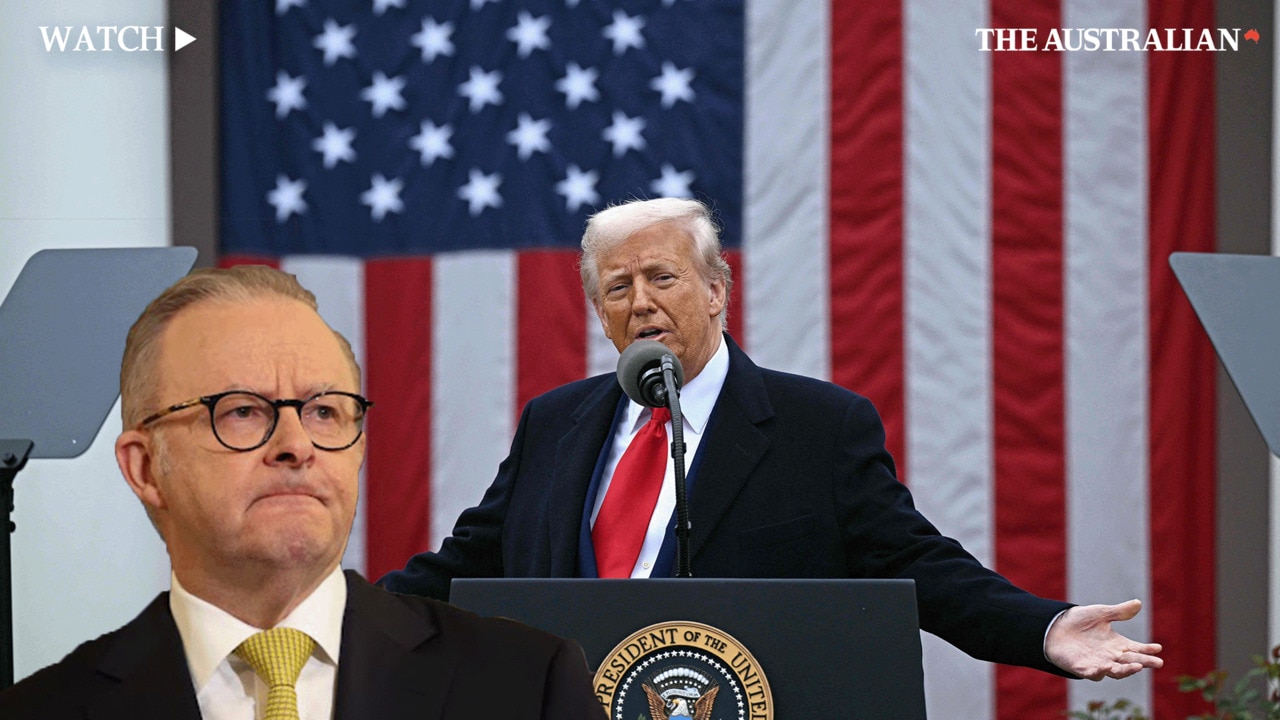
Trade Minister Don Farrell said Australia would still continue to negotiate with the US to remove the “unfair 10 per cent tariffs” on Australian goods.
“We believe that it’s by negotiation, by discussion, by sitting down and explaining to people the issues at hand that we can best present the case for Australia,” Senator Farrell said.
He also urged diversification of Australian exports.
“I also had the opportunity to speak to all the affected industries by these decisions, the Prime Minister’s outlined the way in which we’re going to continue to support those industries, but in particular, push them out the door into new markets,” he said.
“That’s what we’ve got to do. We’ve got to push Australian companies out in the world, why is that?
“Well, because we know that if you’re an export-focused company, your profits are higher but more importantly, the wages of your staff are higher. So, we have now a renewed opportunity, people want to talk to us, we want to talk to them, it’s all about expanding our opportunities to get our wonderful food, wine, and manufacturing product to the rest of the world.”





To join the conversation, please log in. Don't have an account? Register
Join the conversation, you are commenting as Logout